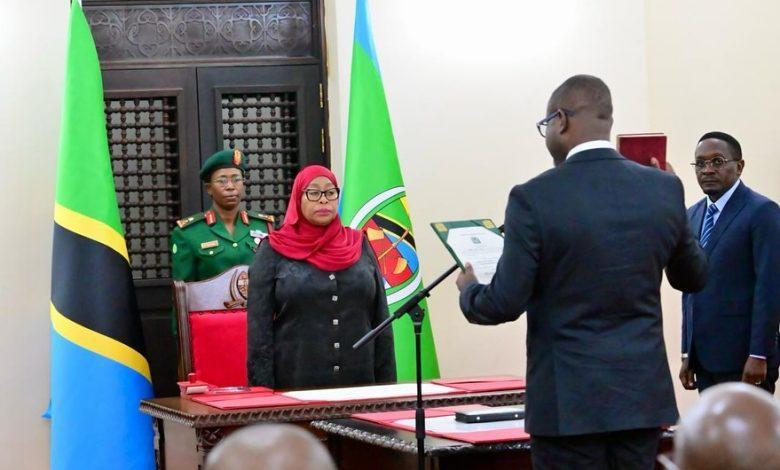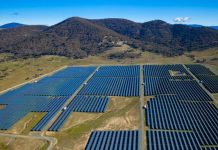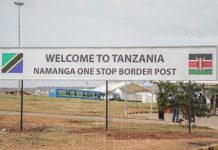Dr Hilderbrand Shayo
Africa-Press – Tanzania. I WANT to take this opportunity to congratulate the ruling CCM on its remarkable and resounding victory among the 16 political parties that were legally in the race to provide Tanzanians with a party and members of the parliament in the October 29th election, which ended last week.
Examining how campaigns and ultimately the election process was managed, Tanzania is once again showing the world that free and fair elections, which give Tanzanians the opportunity to choose the party and leaders they believe will lead the country for five years, are achievable thanks to the political maturity that the nation continues to uphold.
Despite differing views, the election of Dr Samia Suluhu Hassan as president, along with the majority of CCM lawmakers and councillors, constitutes a renewed mandate based on continuity, trust and confidence. Tanzanians, who were registered and voted for their leaders, have reaffirmed their belief in their choices, and for those who voted for CCM have reaffirmed CCM’s mission of progress, long-reach experience, desire for unity and inclusive growth.
Leaving aside the incidents of attempting to disrupt peace in some areas where Tanzanian security forces were able to control them, the victory achieved by CCM demonstrates, within 272 election constituencies, a widespread desire to carry out the socio-economic changes started during Dr Samia’s term 6th phase first term, taking over as per the Tanzania constitution from the sudden death of the late President Dr Magufuli while in office, especially among those that support social cohesion, institutional accountability and economic stability.
Strengthening the economic framework through improved governance and generating employment opportunities remains the primary challenge ahead.
The electorate anticipates a concentrated effort on industrial development, adding value and creating jobs, all supported by robust plans. The upcoming 6th phase, the second term of government actions, must effectively translate macroeconomic growth into tangible livelihood opportunities, especially for young people and women.
Here, thanks to the 200bn/- already pledged during the campaign to support entrepreneurs at reasonable rates, progress can be made. Improving local manufacturing, supporting small and medium-sized enterprises and boosting export competitiveness are crucial to realising Tanzania’s FYDPIV vision and ensuring inclusive, sustainable growth, which will truly turn pledges into reality.
Dr Samia, with an overall 31,913,866 votes, accounting for 97.66 per cent of the total votes as announced by INEC, demonstrates that Tanzanians have expressed a desire for leadership that upholds integrity, transparency, and efficiency within public service.
As President of the United Republic of Tanzania and Dr Hussein Mwinyi for Zanzibar, both administrations are expected to strengthen initiatives to combat corruption, promote fiscal responsibility, and implement performance contracts across all levels of government.
Citizens now anticipate a government that engages with them, remains accountable, and delivers on its promises—laying a solid foundation for trust between the state and its people.
Although it may not be openly expressed by many, a core expectation of the electorate is to promote empowerment for both youths and women through improved access to financial resources, skill development and market opportunities.
The proposed allocation of 200bn/- for wajasiriamali (entrepreneurs) holds immense potential, provided it is managed with careful diligence and foresight. With the election of the candidate who made this pledge, there is now a clear opportunity for strategic and effective implementation of such promises. If executed thoughtfully, this initiative could become a cornerstone for fostering inclusive economic growth, leading to both individual empowerment and broader national progress.
Citizens expect a governance model that promotes fair opportunities, turning talent and innovation into successful economic activities that create jobs and reduce dependence. Over the next five years, Tanzania’s population expects the CCM government to strengthen further infrastructure development, including roads, railways, ports and the energy sector.
Strategic projects such as the SGR, the Julius Nyerere Hydropower Plant and rural electrification must not only be finished but also be smoothly integrated to enhance regional trade and draw in new investment. Infrastructure forms the backbone of national progress and is a vital driver of social inclusion.
A significant portion of the Tanzanian population relies on agriculture as their primary source of income, leading to a collective anticipation for increased investment in contemporary farming practices, irrigation systems and the enhancement of agribusiness value chains.
Under Dr Samia’s guidance, the government is expected to strengthen collaborative frameworks, ensure the availability of affordable resources, and advocate for agro-industrial parks that facilitate direct links between farmers and markets.
Securing food supply alongside improving rural livelihoods will be vital for maintaining public trust. The electorate advocates for policies that bridge the gap between education and employability. The enhancement of vocational training, the raising of tertiary education standards and the allocation of resources to science, technology and innovation are regarded as urgent priorities.
Over the next five years, Tanzania is well placed to nurture a cohort of skilled problem-solvers ready to lead digital transformation and drive industrial progress in an increasingly competitive global landscape. There is a widespread expectation among the public for enhanced social safety nets, strong healthcare infrastructure and universal access to essential services.
The government should continue to expand health insurance coverage, upgrade medical facilities and ensure fair service delivery, particularly for rural and economically disadvantaged communities.
A nation’s well-being is the foundation of a prosperous economy. Under Dr Samia’s leadership, Tanzania’s diplomatic efforts have markedly increased its prominence both regionally and internationally. In the upcoming term, constituents expect her administration to further strengthen these collaborations to attract foreign direct investment, tourism and development finance.
Sustaining investor confidence through consistent policies, stable governance and regional cooperation will be vital to transforming Tanzania into the economic hub of East Africa. Tanzanians fundamentally seek leadership that promotes unity rather than division.
The election of Dr Samia presents a key opportunity to strengthen national cohesion, encourage meaningful dialogue and foster a sense of patriotism. Citizens expect governance characterised by inclusivity, celebrating diversity and ensuring that the benefits of development are fairly shared across all regions.
By strengthening social cohesion and promoting fair development, CCM, given this impressive overall victory, has the potential to solidify its legacy as a pillar of stability, progress and transformative change that will enhance the lives of Tanzanians.
The election of Dr Samia and Dr Emanuel Nchimbi with 97.66 per cent for the mainland and Dr Hussein Mwinyi’s overall 74.8 per cent victory for the islands marks a pivotal moment for Tanzania and Zanzibar before the global political stage. Citizens anticipate the fulfilment of commitments regarding prosperity, inclusion and effective governance.
The next five years for the mainland and Isles, under Dr Samia Suluhu Hassan and Dr Hussein Mwinyi, respectively, will, in my view, be pivotal in determining the effectiveness with which the leadership transforms the revitalised political trust and trust bestowed on these leaders into tangible progress for all Tanzanians.
Source: Daily News – Tanzania Standard Newspapers
For More News And Analysis About Tanzania Follow Africa-Press







